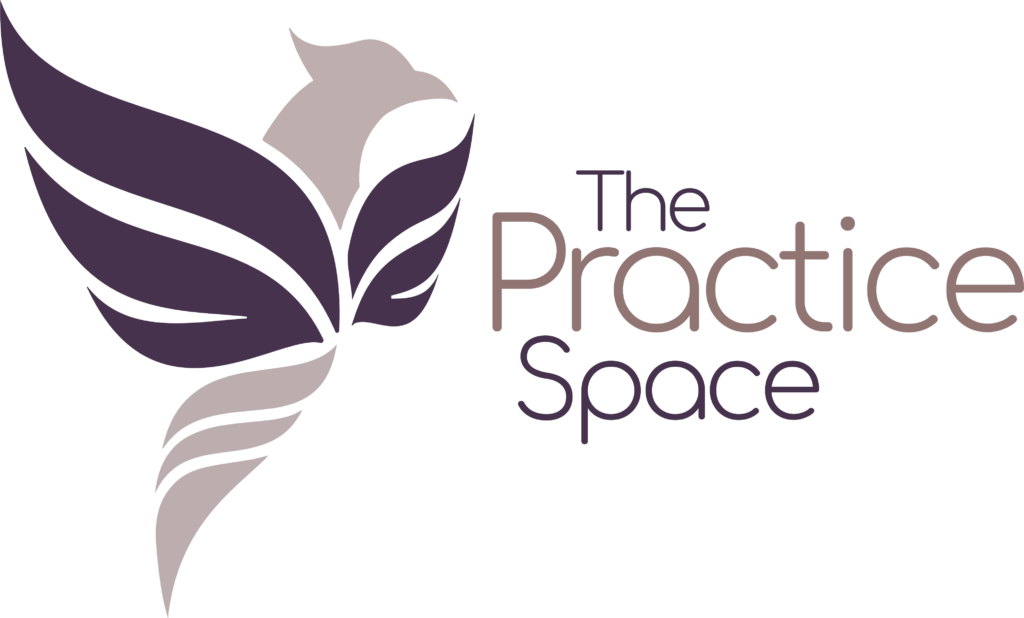Your support system is everything. It helps with self care and stress relief.
Have you ever experienced a conversation that resonated with you to your core? Did you feel so seen and so heard? And, did it leave you feeling more motivated and inspired? It’s become quite rare in the modern world, driven by technology, non-stop notifications and the hustle and bustle of life. Yet, we need the right support systems in place for our own self care and stress relief.
Finding the Right Support Systems
Everyone is chronically stressed and exhausted. Most people don’t have the emotional or mental lead to hold space for their families and friends. They also aren’t experts in those fields and would be doing a disservice by pretending to be. We are lucky to live in a world with many paid support options. You’ll benefit immensely from these support systems, which will leak into all other areas of your life.
High achievers and emerging leaders, listen up. From my own experience, I have benefited from all of these different types of support: consulting, mentorship, coaching and therapy. Without it, I would have never experienced personal growth, career growth or awareness so early in my life. You will move faster and build resilience by creating a support network around you that serves your needs now and your desires of where you want to go. You will develop the self confidence and self awareness to reach new levels and goals.
In this article, we will talk about coaching, therapy, mentorship, and consulting. After reading this, you’ll understand the differences and how and when you might benefit from them.
Overlap between coaching, therapy, mentorship and consulting
It’s also important to note that although there is overlap between these tools, they still serve different purposes at their core. Additional training requirements and experience levels are important to consider when determining what support you need. Otherwise, you’ll feel like you’ve spent a whole lot of money for minimal results. And many practitioners wear multiple hats. It can also be common to find someone like me who does coaching, mentorship and consulting or like Em House who does both therapy and coaching.
Breaking Down the Different Support Systems
Coaching as a Support System
Imagine freely discussing your core values, dreams, aspirations, and all the different parts of you, desirable and less desirable, without feeling unheard, unseen, and totally misunderstood. Imagine being challenged to look deeper within yourself and making progress towards your goals while feeling more fulfilled and aligned. That’s coaching.

What is Coaching?
The International Coaching Federation (ICF) defines coaching as a thought-provoking and creative process that inspires individuals to maximize their personal and professional potential. It’s a robust process that creates a trusted place and a mirror to explore yourself deeper. It establishes accountability towards your goals and the future you desire.
The focus in coaching is on the present and future. It’s about learning to tap into your own inner wisdom and resources.
“Just tell me the answers” – you might want to say
But that’s not coaching.
You’re creating lasting, sustainable change within yourself that will last a lifetime by learning to seek within. It’s an act of self care.
Active listening, powerful questions and creating a learning environment are skills. They take practice, and this is why good coaches deliver excellent results.
Does Coaching Work?
As of 2023, coaching is a $4.564 billion US industry per year globally. Although people generally seek coaching services to improve self-esteem / self confidence (79%) and work/life balance (76%) the “ultimate” reason people actually hire a coach is to improve career opportunities or business management.
The relationship with your coach tends to be more short-lived, with the average coaching relationship being 12 months or less.
And the ROI is there to prove that it works. People experience various positive impacts from coaching, including improving self-esteem/ self confidence, relationships, communication skills, wellness and career opportunities. 96% say they would repeat the coaching experience given the same circumstances that led them there in the first place, and 68% made their initial investment back. Coaching is a valuable investment in your personal and professional development, contributing to stress relief and holistic self care practices.
Finding Coaching Support
You’re ready for change or amid a crossroads. You need some help connecting back to yourself and your core values and some extra support and accountability to get there.
Interested in having a coach? Schedule a connection call with me and let’s explore the possibilities.
Coaching is not therapy, consulting or mentorship. Although these are all powerful methods, they are different and yield different results. So let’s talk through these too.
To learn more about coaching, check out my other articles on coaching Breakthrough The New Frenzy: What Is Coaching? and Bottom Line Here: What Does A Coach Do?
Therapy as a Support System
Imagine being able to freely talk about the problems in your marriage, the horrible resentment you feel towards your family or the debilitating panic attacks you experience daily. You can do that without being judged or made to feel worse about it than you already do. You’re gaining strategies and skills to manage those issues and drastically reduce your emotional load. That’s therapy.

What is Therapy?
Therapy is about going really deep in your present and past. It’s about talking about your emotions, thoughts, behaviours, family drama and other things that might be causing you emotional distress. It’s another act of self care.
1 in 5 Canadians are experiencing mental illness every year, and therapists are professionally trained to treat and help with severe mental health issues. This doesn’t mean that other practitioners won’t positively impact mental health. However, it’s important to note that they might not be professionally trained to deal with those situations and may not be equipped to help you.
Therapy can be a powerful tool for stress relief, especially when you’re stuck in the same loop about the past, feeling anxious or sad. Situations where you feel trapped as the victim and find yourself blaming your family or others for why you’re stuck or can’t do something.
Therapists can also help you work through trauma. As my own therapist, Sherry Dale, says, “It isn’t always the Big-T trauma experienced by combat veterans, hurricane survivors, or victims of physical and/or sexual violence, but Small-T Trauma, or triggers as she calls them that when pushed, causes an unpredictable emotional response. Although we don’t understand a lot about “emotional trauma,” we do know that when the brain codes an event as trauma, the memory of that event is experienced differently than non-traumatic memories.”
Does Therapy work?
Based on Statistics Canada, in a lifetime, 18.1% experience alcohol disorder use, 11.3% major depressive episodes, 8.7% generalized anxiety disorder and 8.1% social phobia, so if you’re experiencing some more severe mental health distress, you’re not alone. Women are also more likely to have mood or anxiety disorders, and men are more likely to have substance use disorders, which is kind of interesting.
The most common type of therapy is CBT therapy, which works really well when you’re someone who doesn’t typically talk or know how to talk about what they are going through. It can be incredibly empowering to have that space to speak. There is a point, however, when talking and venting is counterproductive, and you might want to look into alternative methods like EMDR therapy, hypnosis or other methods that target your subconscious mind.
For me personally, EMDR therapy was an absolute game changer. I stopped having panic attacks after only 2 sessions with Sherry. I was able to let go of a lifetime of family triggers that were keeping me stuck in my own stories as the ultimate perfectionist, people pleaser and martyr.
75% of people who enter psychotherapy experience some benefit from it. It’s also more common to have a long-term relationship with a therapist. You might start with many regular sessions and slowly drift to only seeing them as needed.
This article from Co-active Institute of Training and this PDF from the ICF explains therapy vs coaching too.
Finding Therapy Support
I’m not a therapist, but I know some outstanding ones.
Sherry Dale has been an intuitive therapist for over 20 years and has been mine for over 6 years. I recommend her to everyone. After 2 sessions with her, I stopped getting panic attacks. She specializes in EMDR, emotional triggers and the subconscious.
Jelani Adams has been a therapist for over 10 years and is the clinic director at ThriveCBT. He mainly uses CBT to treat depression, anxiety disorders, stress management, PTSD and OCD. There are also other practitioners at his clinic that service families and children.
Consulting as a Support System
You just started a new business and need to learn about starting a business. You’ve worked at a start-up and know how to get gritty, but you need to learn how to show up on social media or if you should even show up on social media. It would help if you learned how to land your first client. Hell, you don’t even really know what it is that you sell. This is where consulting comes in. A consultant can help you figure out what you’re selling, how to land your first client and create a marketing plan that aligns with you.

What is Consulting?
“Consulting is helping clients solve their most pressing business problems or issues. Consultants are enablers. We work across a wide range of roles, industries, and geographies to apply our methods of analyzing information and to identify a new, positive way forward for our clients.” – Stephanie Lam, Deloitte.
Consultants give you a trusted set of hands while they help you solve pressing problems and any knowledge gaps you might have. They are more of an advisor and expert in their field. They will provide you with advice on how you should do things.
Does Consulting Work?
The consulting industry is growing at an average rate of 4% annually from 2019 to 2025. With expected labour shortages globally, the demand for niche expertise, fractional experts, and gig workers has never been higher.
The last company I worked for was an IT consulting firm specializing in cloud consulting. Since people didn’t understand the public cloud then and there were so few “experts” in the field, companies hired them to fill that knowledge gap.
This is one-way consulting works really well. Consulting can also work well if you gain the knowledge to market or sell your product or services effectively. Or, if you’re interested in learning more about your health and wellness, you might consult a naturopath, fitness trainer or wellness specialist to help you fill in those gaps.
Consulting is an act of self care and provides stress relief. It offers a trusted support system to navigate challenges, allowing you to focus on what matters most. Taking advantage of consulting services not only addresses business needs but contributes to your overall well-being, making it a valuable investment in yourself.
Finding Consulting Support
You want advice from someone who’s done it before.
I’m a CPA, CSPO. I spent over 10 years in the corporate space. I built a career as a global finance and business operations leader. Some of those highlights were scaling a company from 40 to 400 people and implementing 3 core systems worldwide within before it was acquired. My vision is always people focused and how we can work better together.
I’ve also been building my coaching practice over the past few years, where I support emerging leaders in discovering ways for their ambition to coexist with their well-being. I’ve made many mistakes and had to redefine my identity and success. I’d love to save you from making the same mistakes I did.
I can support your efforts in building new corporate finance and business operations teams, cultivating high-performing teams and helping you craft a sustainable business model to grow your solopreneur business.
Interested in tapping into my knowledge? Schedule a connection call with me and let’s explore the possibilities.
Mentorship as a Support System
Imagine knowing that someone has your back and advocates for you. They push and challenge you, but you know it comes from a good place. They believe in you and are beside you, helping you achieve your goals. You know they’ve been there. They get it. That’s mentorship.

What is Mentorship?
According to the Cambridge Dictionary, Mentorship is giving a younger or less experienced person help and advice over time, especially at work or school.
It’s about creating a longer-term relationship with someone you admire and trust. A mentor that you can learn from their past experiences. The mentor will share their experiences and what has worked for them. They might share other resources with you, like books, networking groups, podcasts and events. They might introduce you to a connection to assist you in your growth and development. The best part about mentorship is that the relationship is mutual, with 87% of mentors and mentees feeling more empowered by their relationship and having developed greater confidence. Talk about a win-win!
Does Mentorship work?
Here are some other fun statistics. 97% of people with a mentor say they are valuable, and mentees are 5x more likely to be promoted than those without a mentor. 1 in 4 employees in a mentoring program had a change in salary, and even with all that, 6 of 10 women have never had a formal mentor.
Having mentors changed my career trajectory drastically by helping me network and work with influential people in the organization. Getting into bigger rooms, invited to executive offsites and front of mind or new projects and opportunities.
The keynote about mentorship is that it contributes to stress relief and self-care. When someone believes in you, advocates for you, and puts their power and trust in your learning and development, your potential increases exponentially, providing a source of support and encouragement for your personal and professional well-being.
Finding Mentorship Support
I have always believed in mentorship. Anyone who has worked with me on my teams knows I always advocated, supported and challenged them to achieve their professional and personal goals. It’s one of the reasons I decided to start my own business, and it’s something I offer to all my clients.
My clients know that when they hire me, they aren’t just getting a coach – they are getting someone who will do everything possible to help them succeed. Interested in having a mentor? Schedule a connection call with me and let’s explore the possibilities.
I’d also recommend looking around at the people in your circle and your company. Is there someone in a role that you admire? Does someone have the career trajectory or business that you seek to have? Approach them. There are also more formal mentorship programs that might be more local to your city or country.
Closing Thoughts
All these elements—coaching, consulting, therapy, and mentorship—are incredible tools for self care and stress relief. Your support system, paid or unpaid, will help you build self awareness, self confidence and allow you to grow into new levels of professional and personal growth. By understanding the differences between the different types of support systems, you can decide which type you need most right now. Learn more about coaching and what a coach does here in previous articles I’ve written.
And before you go, here’s a question to ponder. What could you achieve if you had the support and guidance to pursue your deepest aspirations? And what kind of support and guidance will best serve you for where you’re at in your journey?
Are you looking for coaching, mentorship or consulting? Schedule a connection call with me. Let’s explore the possibilities.
Sources:
- 2009 ICF Global Coaching Client Study
- 2020 ICF Global Coaching Study
- 2023 ICF Global Coaching Study
- Coaching Definition, International Coaching Federation Website, https://coachingfederation.org/about
- Gia Storms, The Difference Between Coaching and Therapy, Co-active Training Institute, Sept 21, 2021, https://coactive.com/resources/blogs/the-difference-between-coaching-and-therapy
- Client Referral, 2021, International Coaching Federation, https://coachingfederation.org/app/uploads/2021/01/ClientReferral.pdf
- Ellen Stephenson, Mental disorders and access to mental health care, Statistics Canada, Sept 22, 2023, https://www150.statcan.gc.ca/n1/pub/75-006-x/2023001/article/00011-eng.htm
- Jessica Booth, Talk Therapy: What It Is, Types And Effectiveness, Forbes, May 24, 2023, https://www.forbes.com/health/mind/talk-therapy/#:~:text=While%20the%20effectiveness%20of%20talk,it%2C%20according%20to%20the%20APA.
- Katherine Nicholls, Statistics about mental health treatment and services, Councelling Directory, Aug 2023, https://www.counselling-directory.org.uk/talk-therapy-stats.html#selfmanagement
- Canadians short on access to care for mental health and substance use, Canadian Institute for Health Information, Aug 2, 2023, https://www.cihi.ca/en/taking-the-pulse-a-snapshot-of-canadian-health-care-2023/canadians-short-on-access-to-care-for#:~:text=August%202%2C%202023%20%E2%80%94%20About%201,hit%20by%20lack%20of%20services.
- Sherry Dale, Emotional Triggers Can Wreck Your Relationship, Medium, July 5, 2020, https://medium.com/@sherrydalemsw/emotional-triggers-can-wreck-your-relationship-87ff724c64ab
- Stephanie Lam, What is Consulting?, Deloitte, https://www2.deloitte.com/ca/en/pages/careers/articles/what-is-consulting.html
- Essential Consulting Industry Statistics In 2023, Zipdo, https://zipdo.co/statistics/consulting-industry/
- Nicola Cronin, Mentoring Statistics: The Research You Need to Know in 2023, Guider, Aug 8, 2023, https://guider-ai.com/blog/mentoring-statistics-the-research-you-need-to-know/#:~:text=Mentoring%20for%20career%20development%20statistics%3A&text=Mentees%20are%20promoted%205%20times,do%20not%20have%20mentors%20(Source)
- Mentorship Definition, Cambridge Dictionary, https://dictionary.cambridge.org/dictionary/english/mentorship



